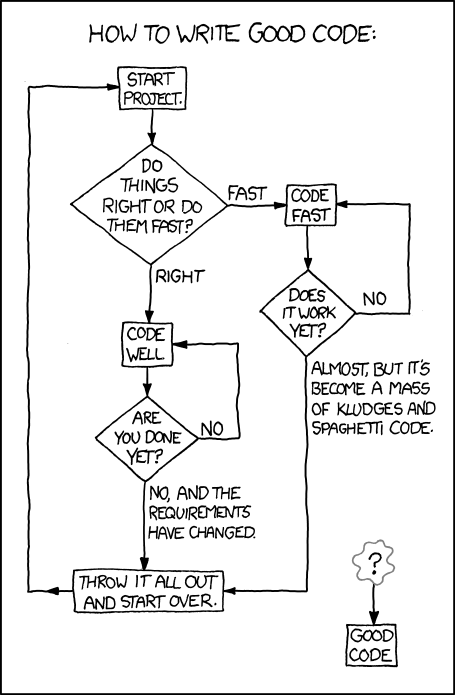I saw Scott Klein‘s excellent talk at the also-excellent Big Data Future conference this week, and started reading his ProPublica posts. One of them had a provocative title: How to Start Learning to Program. The post, unfortunately, doesn’t deliver on the title’s promise; in fact, it could lead to non-programmers getting their feet wet and becoming discouraged because they needed to do production-quality work rather than getting into programming the best/most fun way, doing goofy stuff for its own sake, with no productive goal. (None of this is an ad hominem slight on Mr. Klein, who’s doing terrific stuff and is by all accounts a fantastic guy.)
I thought, You know what’d be really handy? A comparison of how the canonical first-program is written in a bunch of different languages. Partly to illustrate the regularities and divergence across language for a basic task, and to show how, in some languages, it can be hard to do even a simple thing.
Then I found this: http://en.wikipedia.org/wiki/List_of_Hello_world_program_examples.
OK, so ‘Hello World’ is a canonical example, but it’s not informative about the stuff you really want a program to do, like iterate. So, here’s Nodewave’s comparison of the 500-iteration loop printing “I will not throw paper airplanes in class.” Of course, most languages have multiple ways to achieve the same end, and this listing is not exhaustive (but at the time of this writing, there are three Perl entries…).
Penultimately, and contrary to the advice to leaf through books, take a look at the tutorials at http://www.w3schools.com/. You don’t need to install anything to get started, the tutorials don’t have the unnecessary, yet apparently obligatory, prose that fills lots of programming books.
Finally, the realization that there are better and worse ways to write code
— that what works may not be what’s best, that what’s best may simply be unnecessary, and that the easiest way to do something in the short run can cost you later
— can come late, and it’s often followed by the feeling why didn’t someone tell the importance of doing things the right way? Yet, even in the hyper-formalized world of coding there are things that can only be known via oblique means and subtle vehicles:
